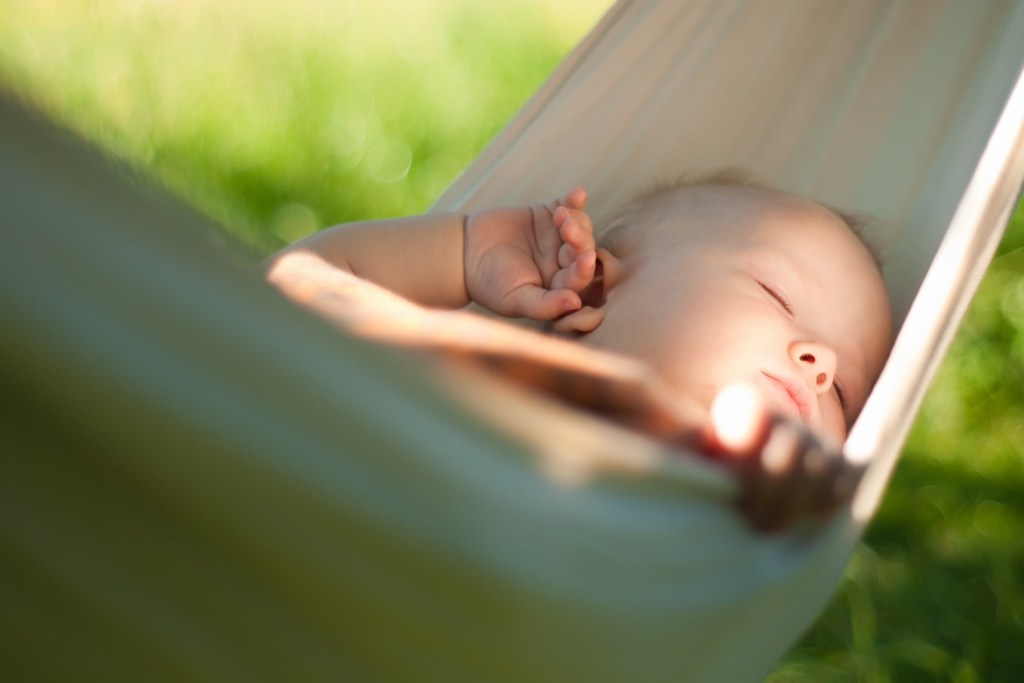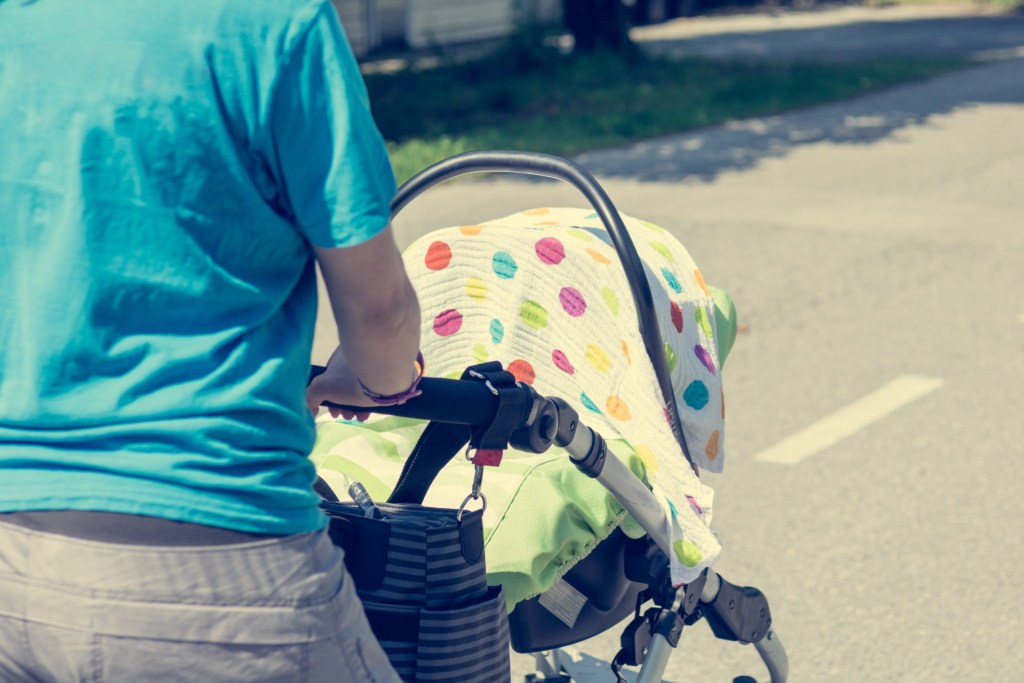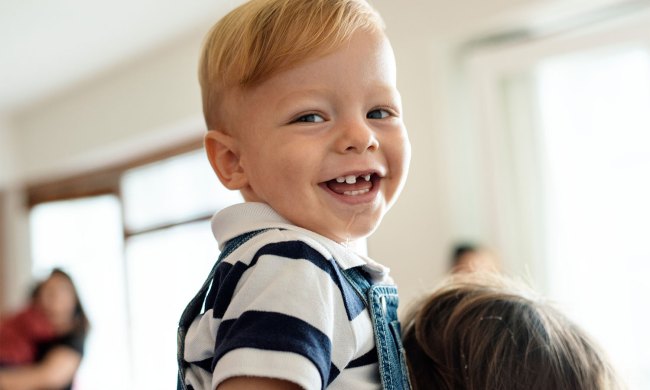Being outdoors with your kids on summer days, soaking up the sunshine while making memories is a delightful seasonal activity that is likely high on every parent’s to-do list. Turning off the TV and getting outside is a great way to spend a gorgeous, sunny day. However, the amount of time spent outside may greatly depend on your kiddos – especially if you have a baby. You might be wondering, how hot is too hot for baby?
High heat indexes and stifling humidity are more than just major discomforts for adults. Imagine having to suffer through bouts of uncomfortable, damp heat, without the ability to remove yourself from the experience. Babies need extra care and attention to protect themselves and their skin from the heat when outside during the summer months.

How hot is too hot for baby?
As a general rule of thumb, if you’re uncomfortable in the heat, it will be too hot for baby as well. Always keep this in mind before heading outdoors.
If you’re a parent to a little one and are looking for ways to beat the heat while still enjoying the beauty and freshness of the outdoors, then we’d love to share some of our best tips for protecting your baby from the heat this summer.
How to protect baby from the summer heat
Dos:
Summer days – full of balmy breezes and warm rays of sunshine – are perfect for getting outdoors for some family fun. Here are a few tips, tricks, and suggestions that may save you and your baby from any discomfort after a long day in the sun:
- Always apply sunscreen – You may think this recommendation is silly, especially you’re only a few feet from your front door and aren’t spending the day at the beach or pool. However, if you’re outside, your baby is still exposed to the sun’s harmful UVA and UVB rays. If you plan on spending anything longer than about 10 minutes outside in the backyard, you’ll most definitely want to apply a layer of sunscreen to your baby’s exposed areas such as the shoulders, face, and legs, if your baby is over the age of 6 months. This can help protect your baby from the unnecessary pain and discomfort that can set in after even a short time spent in the sun.
- Pick cooler times of day – Believe it or not, there are parts of the day that are hotter than others. In the peak hours of the day — or the hours of 10am-3pm — the sun is at its highest point in the sky, giving off its strongest and hottest rays of the day. While it’s not always convenient to plan around peak heat times, limiting the amount of time spent outside during those hours can help prevent sun exposure and heat sickness.
- Make your own shade – If you’re simply not able to avoid the scorching, middle-of-the-day heat, you can always try to make your own shade. While this may seem complicated, rest assured, it’s easy with a couple of tricks. In terms of how to dress a newborn in summer, choose loose-fitting, comfortable cotton clothing, such as a cooling onesie or simple tank and short ensemble. Grab a few of their favorite toys, your pack n’ play, and a fitted crib sheet. Once you’re outside, find a quiet, cooler spot in your backyard and set up the pack n’ play. Add the toys and place your baby into the pack n’ play, outfitted with the fitted sheet over the top. The breathable, fitted sheet allows for air circulation while also shading your baby from the sun.

Don’ts:
Every parent wants their baby to be as comfortable and happy as possible. That’s especially true when you’re out and about, either enjoying a day at the park or strolling down the sidewalk. And just like our “do’s” for keeping baby safe in the heat, there are just as many “don’ts” to highlight as well:
- Forgetting to hydrate – This is the biggest, most important, and essential “don’t” to remember. Water for your baby (as well as yourself) is crucial for any summer activity. Babies that become dehydrated can begin to feel the effects of overheating very quickly. They can quickly escalate from cranky and sweaty to vomiting and lethargic, so it’s key to have sippy cups of water available to offer frequently.
- Sitting in sweat –Summertime fun carries its own tune of happiness. From sweet and delicious baby laughs to learning new animal or plant names, the summer months are full of new things to learn. The season is also full of perspiration, including for your baby. Because babies often have folds and rolls of skin, those “pockets” tend to fill with moisture – such as sweat – that can easily irritate your infant’s skin. If you notice that your little one has become overly moist with perspiration, it may be time to head inside for a cooling bath and fresh clothing.

From applying sunscreen and drinking water to avoiding the hottest hours of the day and giving baby cooling baths, keeping your little one cool and sunburn-free is not an unattainable goal. The most important thing to remember is, if you’re uncomfortable, odds are your baby is uncomfortable as well. It’s ok to skip out on the park or the pool if it’s simply too hot outside. Babies cannot regulate their body temperatures like older children or adults, so they rely on their caregivers to provide them with the cool environment needed to feel comfortable. You’re putting their needs first, which gives you a leg up on being the best parent possible, no matter what.



